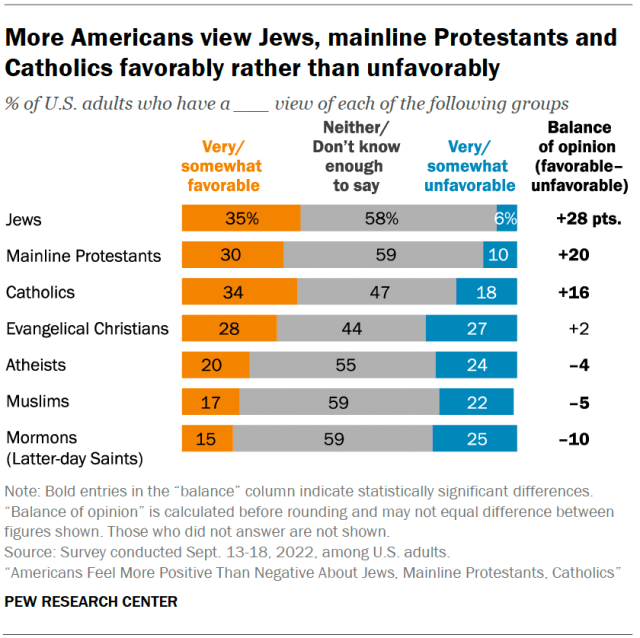Many posts have discussed the role of religion in American life.
As Americans observe Ramadan and prepare to celebrate Easter and Passover, the percentage of adults who report regularly attending religious services remains low. Three in 10 Americans say they attend religious services every week (21%) or almost every week (9%), while 11% report attending about once a month and 56% seldom (25%) or never (31%) attend.
Among major U.S. religious groups, members of The Church of Jesus Christ of Latter-day Saints, also widely known as the Mormon Church, are the most observant, with two-thirds attending church weekly or nearly weekly. Protestants (including nondenominational Christians) rank second, with 44% attending services regularly, followed by Muslims (38%) and Catholics (33%).
...
On any given weekend, about three in 10 U.S. adults attend religious services, down from 42% two decades ago. Church attendance will likely continue to decline in the future, given younger Americans’ weaker attachments to religion.
Specifically, more 18- to 29-year-olds, 35%, say they have no religious preference than identify with any specific faith, such as Protestant/nondenominational Christian (32%) or Catholic (19%). Additionally, young adults, both those with and without a religious preference, are much less likely to attend religious services -- 22% attend regularly, eight points below the national average.
These trends are consistent with other Gallup indicators of religious beliefs and practices, including the importance of religion to Americans and formal membership in churches and other houses of worship.

